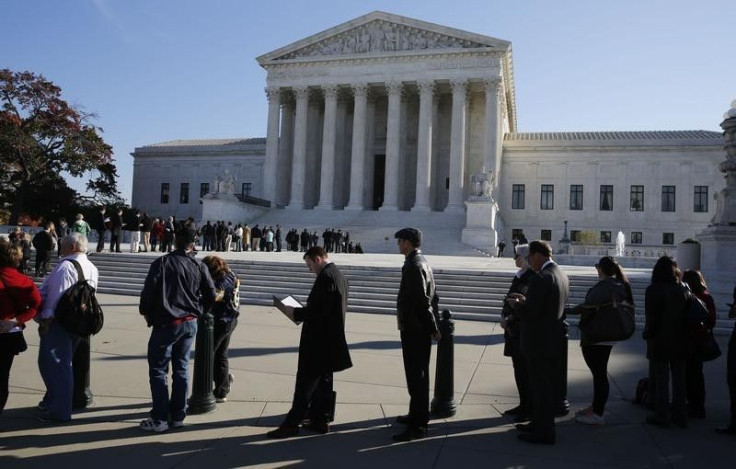Supreme Court rejects Arizona appeal over abortion drug law

WASHINGTON (Reuters) - The U.S. Supreme Court on Monday blocked Arizona from enforcing a state law that restricts access to abortion-inducing drugs by prohibiting off-label uses of RU-486, the so-called "abortion pill."
The high court's refusal to hear the state's appeal means that an April ruling by the San Francisco-based 9th U.S. Circuit Court of Appeals that prevented the law from going into effect while litigation continued will remain intact.
Stephanie Grisham, a spokeswoman for Arizona Attorney General Tom Horne, said the decision "effectively nullifies part of the statute."
The law would prevent women from using the drug between the seventh and ninth week of pregnancy. The U.S. Food and Drug Administration's 2000 approval of the drug applied only up to the seventh week.
The "off-label" use prohibited by the law developed later and allowed the drug to be used up to nine weeks into a pregnancy.
The state said its justification for the law was the medical risk to women caused by using the drug for purposes that were not approved by the FDA.
Arizona is one of a number of Republican-governed states to enact laws seeking to place limits on abortion. The Supreme Court in October blocked some abortion restrictions in a Texas state law that abortion rights groups said would have forced all but a handful of clinics in the state to close.
Under the Supreme Court's 1992 precedent in the case Planned Parenthood v. Casey, an abortion regulation can be legal as long as it does not impose an "undue burden" on women seeking the procedure. In that case, the justices reaffirmed the landmark 1973 Roe v. Wade decision in which the court first held that women had the right to seek an abortion.
The Arizona case's legal dispute is over whether the appeals court followed the correct process in determining there was an "undue burden." In April, the appeals court issued a preliminary injunction stopping enforcement of the law.
Challengers including Planned Parenthood said the law effectively prevented all medication-based abortions.
Planned Parenthood President Cecile Richards said she was pleased "the courts are recognizing that these unconstitutional laws hurt women and block access to safe medical care."
The statute was part of a package of items in legislation signed into law by Arizona Republican Governor Jan Brewer in 2012. The last time the Supreme Court took up an abortion-related issue was in 2007 when it ruled 5-4 to uphold a federal law banning a late-term abortion procedure.
The case is Humble v. Planned Parenthood, U.S. Supreme Court, No. 14-284.
By Lawrence Hurley



























